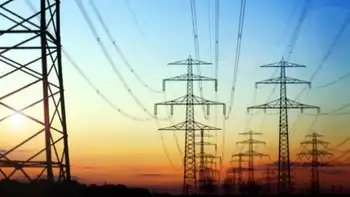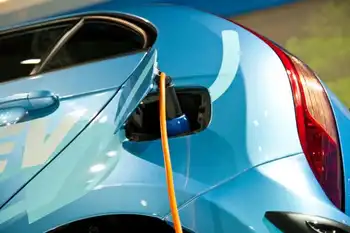New governor reverses old governor on coal
By Kansas City Star
NFPA 70e Training - Arc Flash
Our customized live online or in‑person group training can be delivered to your staff at your location.

- Live Online
- 6 hours Instructor-led
- Group Training Available
The compromise allows Sunflower Electric Power Corp. to build one 895-megawatt coal-fired power plant near Holcomb, instead of two 700-megawatt plants that were repeatedly blocked by Kathleen Sebelius when she was governor.
In exchange for the go-ahead, Sunflower will build more wind turbines and agree to more pollution controls and a greater investment in energy efficiency.
“We have been at an energy impasse for the past couple of years,” said Parkinson, a Democrat. “I thought it was time to bring an end to that impasse.”
The game-changing deal came on ParkinsonÂ’s sixth day in office and as lawmakers were preparing yet another attempt to overrule SebeliusÂ’ veto of legislation to authorize the plants.
ParkinsonÂ’s compromise elated Sunflower executives and plant supporters, surprised most lawmakers and disappointed environmental groups.
“Today, Kansas took a big step backwards,” said Sierra Club spokeswoman Stephanie Cole in a statement. “We cannot build new coal plants and claim to want to slow global warming at the same time.”
Parkinson said he reached out to Sunflower soon after he was sworn in to replace Sebelius. He explained that he was frustrated by the political stalemate that saw the coal issue derailing efforts to encourage renewable energy. He said a little coal and a lot of environmental legislation was better than nothing.
However, the agreement doesn’t ensure the plant will be built. Sunflower must lock in the financing. Its largest partner — Tri-State Generation and Transmission of Denver — said last month that it would be reconsidering its participation, in part because of the political stalemate in Kansas.
Also, new carbon regulations from Congress could steeply increase the cost of coal plants.
Sunflower CEO Earl Watkins said that the compromise would allow his company to build a plant it could finance. He said the new plant would meet any new environmental regulations.
“He’s the one who reached out to us,” Watkins said of Parkinson. “We have a hands-on governor, one that I’m proud of.”
The smaller plant will produce carbon emissions of 6.67 million tons a year, compared with the 10.7 million tons projected to be emitted by the original two-plant project.
Of the 895 megawatts, 200 will serve customers in western Kansas.
As part of the agreement, Sunflower will significantly bolster its investment in wind energy, close two old oil-fired plants in Garden City, increase its use of biofuels, build two transmission lines to carry power west, and dedicate 1 percent of gross sales to energy efficiency programs.
The compromise is contingent on lawmakers passing legislation requiring utilities to use more renewable energy, giving incentives to property owners with wind turbines or solar panels, and mandating new energy efficiency standards for state buildings and vehicles.
Legislative leaders said they expected lawmakers to approve such legislation quickly.
“There’s not much not to like,” said House Speaker Mike O’Neal.
OÂ’Neal said Parkinson may have realized that lawmakers were close to overriding SebeliusÂ’ veto of legislation to resurrect the plants.
“We felt like the momentum was finally moving in our direction,” he said.
SebeliusÂ’ top regulator, Rod Bremby, rejected the plants in 2007, citing the plantsÂ’ estimated carbon emissions and the effect on climate change.
The decision put Kansas on the front lines of the fight against climate change. For two years, lawmakers and Sebelius, a Democrat, battled over whether the plants represented a practical energy source and good jobs or an environmentally outdated and dangerous energy supply.
Four times, lawmakers passed legislation to strip BrembyÂ’s power and effectively authorize the plants. Supporters linked the legislation to efforts to encourage more renewable energy. Sebelius vetoed each measure.
Early on in the coal dispute, Sebelius offered her own compromise to Sunflower: Build one plant. But Sunflower and Sebelius could not agree on the size of a single plant that made financial sense.
Watkins said an 895-megawatt plant was big enough to satisfy Sunflower and its investors.
Parkinson hinted that he may have more surprises in store. At the end of the news conference where he revealed the compromise, he said: “This is just the first announcement of what will be a very good week for Kansas.”











